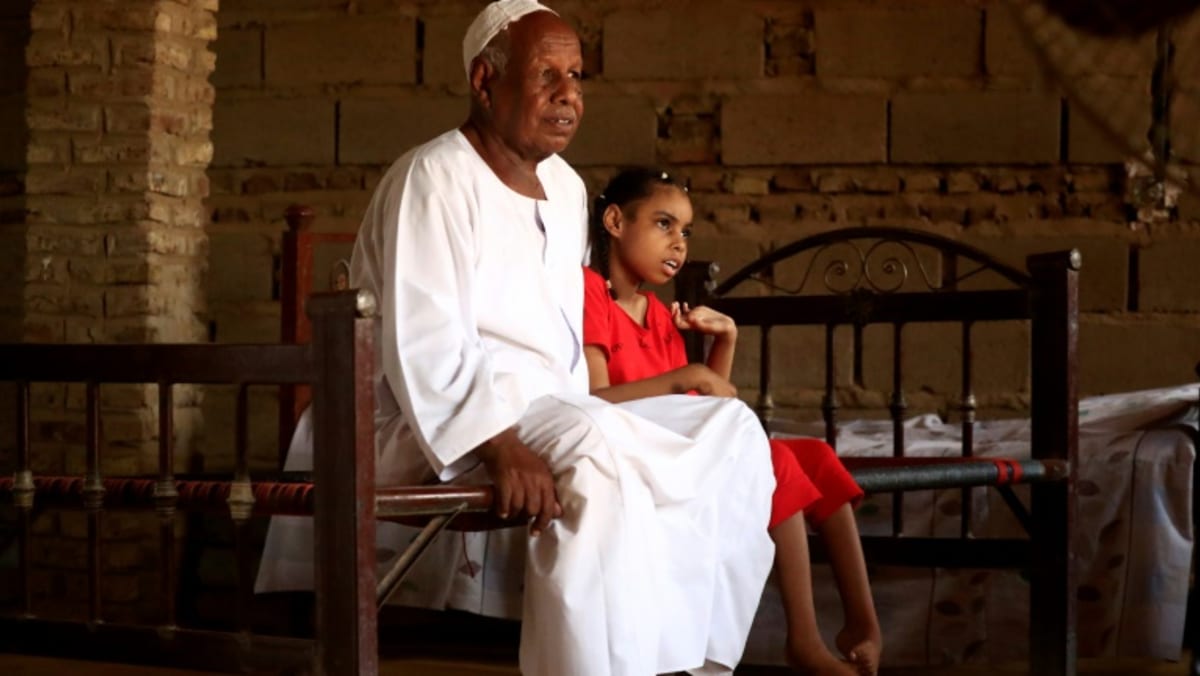Sudan’s gold rush wreaks havoc on health
Ahmed is not the only one of Banat’s 8,000 residents to have observed birth defects and miscarriages.
In a nearby house, Awad Ali says his daughter was “a very normal child”, until she turned two. “Then she became unable to move or walk, stand up or sit down,” he said.
Community leader Algaily Abdelaziz said the problems began five years ago.
“Since we saw these waste deposits appear, children have been born with deformities, and there have been still-births,” Abdelaziz said, noting 22 children had been born in the village with deformities including blindness and brain damage.
Saleh Ali Saleh, from Khartoum’s Neelain University’s Faculty of Petroleum and Minerals, notes that it is well known “that mercury is harmful to health”.
A January report by Saleh and other Sudanese researchers found that around 450,000 tonnes of mining waste – rife with mercury – dot the lush green landscape of River Nile state.
Samples of blood, urine, drinking water and soil from several parts of the state have shown high levels of mercury traces, according to the report.
“People, frankly, are not concerned with removing the waste,” said Ali Mohammed Ali, head of the Sudanese Environment Conservation Society.
The process “requires special treatment” and is “ideally carried out away from residential areas or water sources”, he added.
For all the latest world News Click Here

